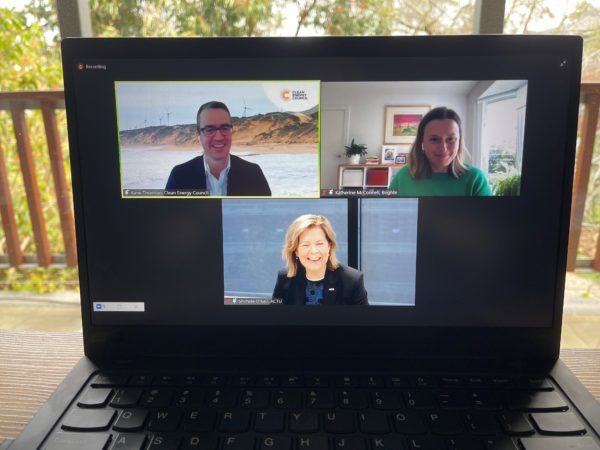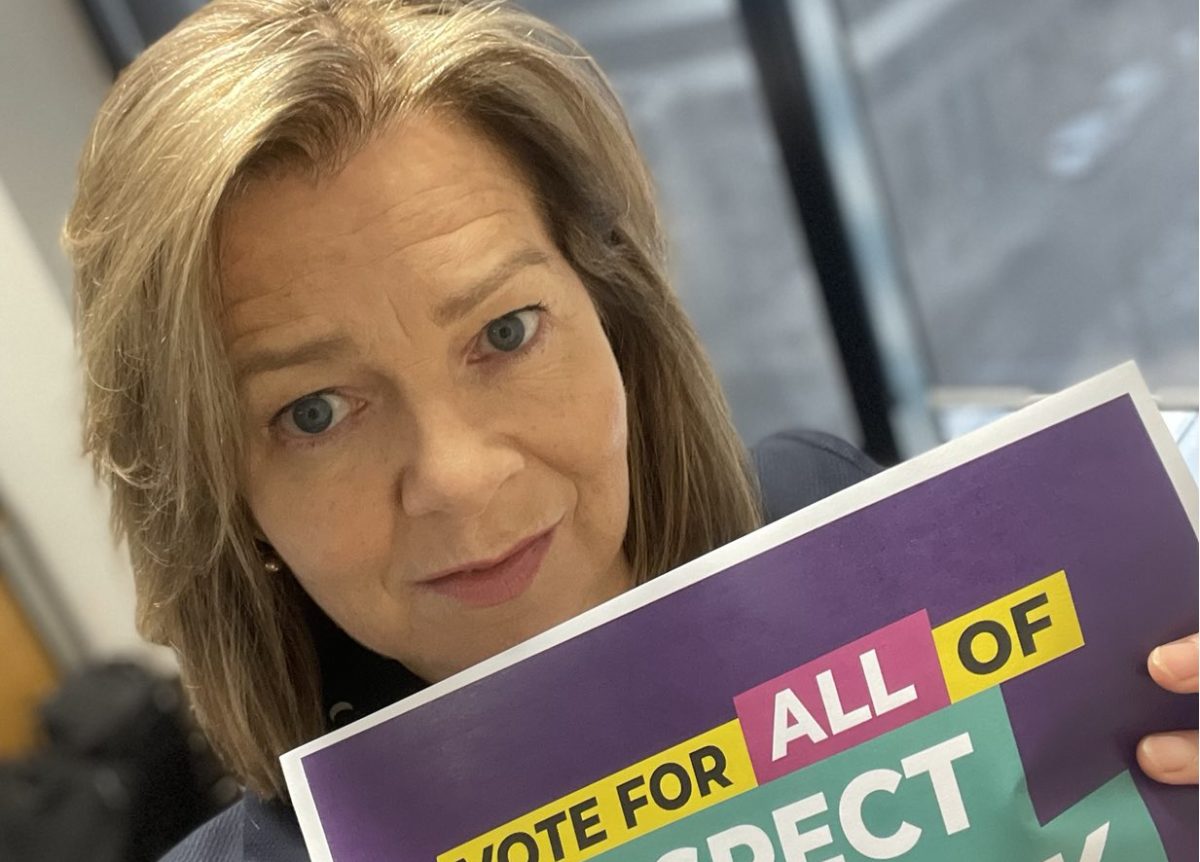Michele O’Neil, who has a long history has a trade unionist and has been president of the Australian Council of Trade Unions (ACTU) since 2018, this morning called out clean energy industries for their record dealing with workers.
Speaking at the Clean Energy Council’s Infinite Australia event on Wednesday, O’Neil said unions have had “mixed experiences” with renewables industries, pointing to examples of unsafe working conditions, the use of short term visa workers and labour hire over permanent workforces. Job insecurity and how it colours workers’ views on renewables industries O’Neil described as a “critical issue to confront.”
Addressing this, she added, is imperative for there to be any hope of scaling clean industries to the levels required to tackle the climate crisis.
“Industry needs to do a lot more work to ensure workers are sharing in the benefits of renewable energy projects,” she said. While many Australian workers are eager to be part of clean energy industries and are cognisant those are the jobs of the future, she said, industries must make themselves attractive and fair to workers – which is currently not often the case.

Twitter/ Clean Energy Council
The coal worker issue
Addressing an issue which has saddled almost every climate action debate in Australian politics for the last decade, O’Neil put forth a nuanced perspective on the ongoing challenges put before clean energy industries up by fossil fuel workers and their unions.
“They’re fighting because they’re proud of legacy of turning dangerous, hard jobs into jobs with good pay, good conditions and job security for many decades,” she said.
“These conditions were fought for by unions over many years. They didn’t just materialise, and very big changes were make over that time as a result of the efforts of workers in those industries.”
Renewables industries must find ways to earn the support of workers, she said. “What are you doing for future workers in this sector to make them want to stand up for your industry?” she said. “What’s your vision to make the renewable energy industry the best place to work in the country?”
“Unions are ready to work with you to achieve this mission, but that vision has to be a shared one.”
Jobs on the horizon, but how to get there
O’Neil also pointed to soon-to-be-published research carried out in conjunction with the ACTU, which confirmed the clean energy economy will indeed offer as many employment opportunities as fossil fuels have traditionally, especially in industries like green steels and other green metals, green hydrogen, battery manufacturing, and technical expertise.
She also noted the serendipitous fact that regions set to lose fossil fuel jobs are often those with good renewable resources and potential for new, clean industries.
Be that as it may, O’Neil said it still isn’t clear to many fossil fuel workers precisely how they will enter these emerging industries. Firstly, she said, mining communities still can’t see, touch or feel these new industries, which are not entering as quickly as mining job are vanishing.
Secondly, she said the bridges from old roles to new ones remain unclear. Skills transfer, she said, was an area which has been chronically under researched. And while it is understood that carbon workers do have some of the skills required to join new industries, there are nonetheless missing links and no clear programs or ways to bridge those skills of yet.
She described renewables industries as asking Australian workers to essentially take “a leap of faith,” an ask which she deemed “not fair.”
Exasperating the problem, she added, was the distress put on our higher educations system from TAFEs to universities, which lost huge quantities of staff during the pandemic. She called the events of the last 18 months the “biggest brain drain” the education sector has ever seen.
“We’ve got a huge disconnect here, a problem between what we need to do to develop skills… and we need to urgently reverse the damage that’s been done.”
This content is protected by copyright and may not be reused. If you want to cooperate with us and would like to reuse some of our content, please contact: editors@pv-magazine.com.









1 comment
By submitting this form you agree to pv magazine using your data for the purposes of publishing your comment.
Your personal data will only be disclosed or otherwise transmitted to third parties for the purposes of spam filtering or if this is necessary for technical maintenance of the website. Any other transfer to third parties will not take place unless this is justified on the basis of applicable data protection regulations or if pv magazine is legally obliged to do so.
You may revoke this consent at any time with effect for the future, in which case your personal data will be deleted immediately. Otherwise, your data will be deleted if pv magazine has processed your request or the purpose of data storage is fulfilled.
Further information on data privacy can be found in our Data Protection Policy.